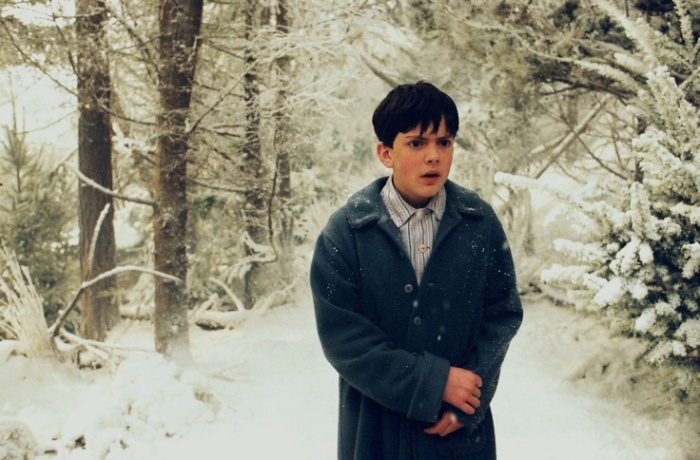In any good story about the supernatural, there’s a skeptic. And there’s always a moment where the evidence mounts and the skeptic begins to waver.

Chapters 4 and 5 serve that purpose in The Visitation. The crucifix cries again, and there’s a mad rush for the alter. A young woman is healed, but others are disappointed.
Disillusioned former pastor Travis is still hiding out at home, but he can’t escape it. He sees the mysterious messenger again, but this time he’s mowing the neighbor’s lawn, and Travis manages to convince himself that it was just a handyman all along.
Until he speaks with him.
I crossed the street, approaching the little lawn mower where he sat waiting…he gave me a sympathetic look. “You’re really going through it, aren’t you?”
I smiled to be pleasant. “Excuse me?”
“You’ll be okay. It’s just a little eye opener, that’s all.”
“Have we met before?”
“Never face to face.”
The mysterious stranger then goes on to claim that they do know one another, and have since Travis was eight years old.
He could have been Jewish, from the Middle East. His skin was dark, his eyes deep brown, his hair jet black with a gentle curl at the ends. Then again, he could have been Native American or perhaps Hispanic.
There’s a little awkward back-and-forth while the Mysterious Stranger demonstrates that he appears to know a lot about Travis. He even mentions his dead wife and other people from his past.
But Travis is still holding out. He can’t bring himself to believe that this isn’t some trick or scam. And he’s right to be suspicious, because if this wasn’t a book about fictional spiritual warfare this could easily be a technique called “cold reading.”
Cold reading is often used by self-proclaimed psychics, palm readers, and prophets to convince their audience that they have some kind of special spiritual power. You can see a demonstration of it in this video:
Notice that Derren picked a young woman, and could assume from her age that she would have lost at least one grandparent. He starts by guessing an older person, and then a woman, and from there goes through a variety of “grandma” tropes (short stature, glasses, flowers). He reads her body language, and appears to get more and more accurate. He also makes several wrong guesses, but moves past them quickly.
Our brains are wired to remember the correct answers and forget the incorrect ones. That’s how it works.
So at this point, you can’t really blame Travis for being skeptical. He’s heard about “messengers” and “miracles,” but the only thing he’s seen with his own two eyes is a guy who could have walked off his job at a physic hotline.
Chapter 5 gives more of a brief survey of what’s going on in the town of Antioch, using some of the small town characters we met before. More and more people are coming to town, hoping to see the crucifix weep. The devout at the Pentecostal church are still watching the clouds and looking for signs.
We catch up to Travis again at the local hardware store, where the proprietor is a disabled Vietnam vet called Matt Kiley. Matt uses a wheelchair to get around, and that’s his life. He doesn’t readily engage in fantasies of holy visitors and healing.
From a story perspective, he’s there to reinforce Travis’ skepticism, but he’s also given a moment to dispense some wisdom.
“Funny. I made some friend at the VA hospital, I’ve met some other folks in wheelchairs, and we got along fine. They never told me to go down and look at some crucifix or wash in some special kind of water or say some kind of magic prayer words. It’s always the walkers who know what you need.”
Our eyes met. We understood each other.
It’s always the walkers who know what you need.
Okay, so it seems a little disingenuous to equate Travis’ disillusionment with being in a wheelchair, but this is a good set up for the next chapter.
In Chapter 6, we’re going back to Travis’ teen years. Travis was raised with a theology intently focused on being a walker. A walker always knows what’s best. A walker always has the answers.
All doubts and questions have to be surrendered, because otherwise you’re not trusting God enough. Blind faith is the answer. Blind faith is always the answer.
Until it’s not.